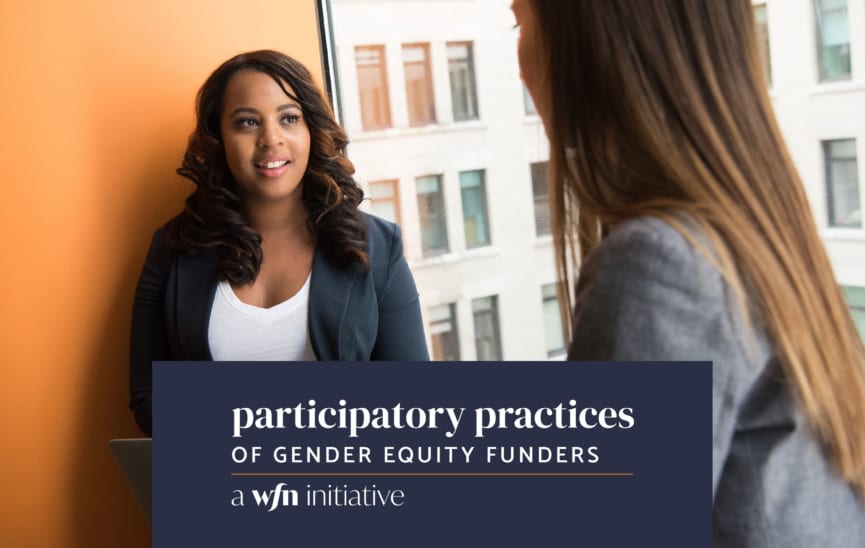People living through problems and struggling to overcome barriers to equality are best able to identify the solutions to those problems. Participatory grantmaking turns the inequality of funding upside down by engaging the communities and constituencies funders seek to serve in the grantmaking process. It is a bottoms-up, grassroots approach to funding that helps to dismantle the economic inequalities baked into the culture of philanthropy. Participatory grantmaking is inherently feminist and ensures that disenfranchised people not only have a seat at the table, they get to help set the table and decide what’s on the menu.
That’s why the Women’s Funding Network (WFN), with support from the Ford Foundation, engaged in a research project to examine the participatory grantmaking practices of community- and state-based women’s funds and foundations. Women’s funds have a long history of collaborative grantmaking practices which actively include, center and lift up the voices of the community members we seek to support. For decades women’s funds and foundations have been the connective tissue among community stakeholders, forging long standing cross-sector partnerships with local nonprofits, community leaders and public officials that strengthen communities and build grassroots leadership.
Many women’s funds and foundations have intentionally applied participatory funding principles for more than a decade, while some are newer to these practices. But all of the philanthropic partners in this study embrace a systems approach that centers the voices of the individuals and communities they work to support.
Our findings were drawn from focus groups, surveys and individual interviews to gather insight and information regarding the practices of those engaging in participatory grantmaking, as well as the challenges and concerns of funders that opt not to apply participatory funding principles. Participants were all members of the Women’s Funding Network and included 44 women’s funds and foundations engaged in participatory grantmaking and 13 organizations not engaged in participatory practice. The large sample size offered a clearer understanding of the spectrum of participatory grantmaking practices happening across our membership.
We have learned a lot from our research. First and foremost, participatory practices are essential to engage all members of the community who are impacted by funding and programming decisions to be involved in the decision-making process. Without it, we fall into the trap of funder-driven initiatives that don’t always fit the needs of communities and constituencies, especially women and girls and communities of color.
This research is part of the larger project that was funded through the Ford Foundation’s participatory grantmaking research process, recently outlined by Chris Cardona, Ford Foundation program officer for philanthropy.
Women’s Funding Network is hopeful that philanthropy can build on this research and support women’s and girls’ funders in their efforts to expand participatory practices and better understand and navigate potential areas of tension or difficulty. We also hope that this research will help encourage mainstream philanthropy to internalize and operationalize the core principle of centering the voices of those most impacted by injustice and inequality and allow for community decision-making and democratization of the shared power that comes from these participatory practices.
